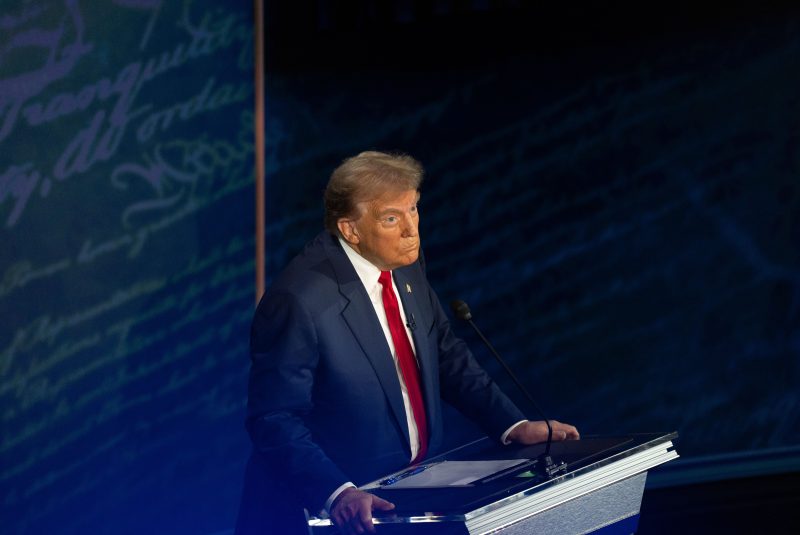In today’s digital age, the battle against misinformation and fake news has become increasingly prevalent. With the rise of social media and the rapid dissemination of information, distinguishing facts from fiction has become a daunting challenge. This challenge has only been exacerbated by the current political climate, with public figures facing intense scrutiny over the accuracy of their statements.
One such figure at the center of this debate is former President Donald Trump. Throughout his time in office, Trump faced criticism for making false or misleading statements, prompting fact-checkers and media outlets to provide real-time corrections. However, Trump’s adversarial relationship with fact-checking organizations further deepened the divide between objective truth and subjective interpretation.
Trump’s aversion to fact-checking was highlighted during his presidency, with several major social media platforms flagging or removing his posts for spreading misinformation. In response, Trump and his supporters decried these actions as censorship, framing the issue as an attack on free speech rather than a measure to combat the spread of falsehoods.
The clash between Trump and fact-checkers underscored the broader societal divide over the role of truth in public discourse. While some argued that fact-checking is essential to holding public figures accountable and maintaining the integrity of public discourse, others viewed it as a form of bias and censorship.
The issue of real-time fact-checking has also reignited debates over the responsibilities of media organizations and social media platforms in curating information. Critics argue that these platforms have a duty to combat the spread of misinformation, while others contend that such actions infringe upon individuals’ rights to express their opinions freely.
Ultimately, the clash between Trump and real-time fact-checks serves as a microcosm of the larger battle over truth and misinformation in the digital age. As technology continues to evolve and the boundaries between fact and fiction become increasingly blurred, the need for objective, accurate information has never been more crucial. It is essential for individuals to remain vigilant, critically evaluate the information they consume, and engage in respectful and fact-based discourse to uphold the integrity of public dialogue.

